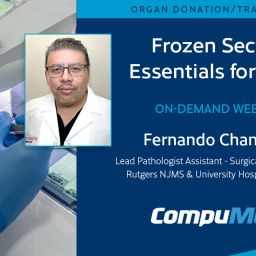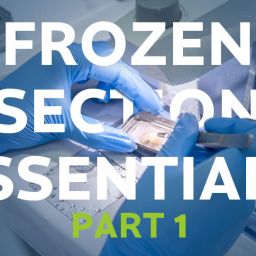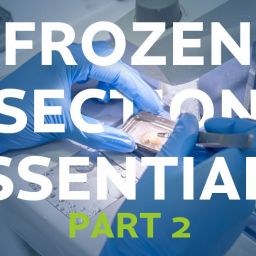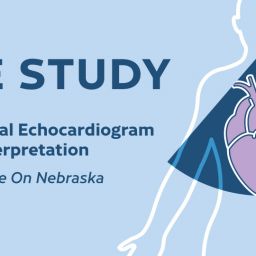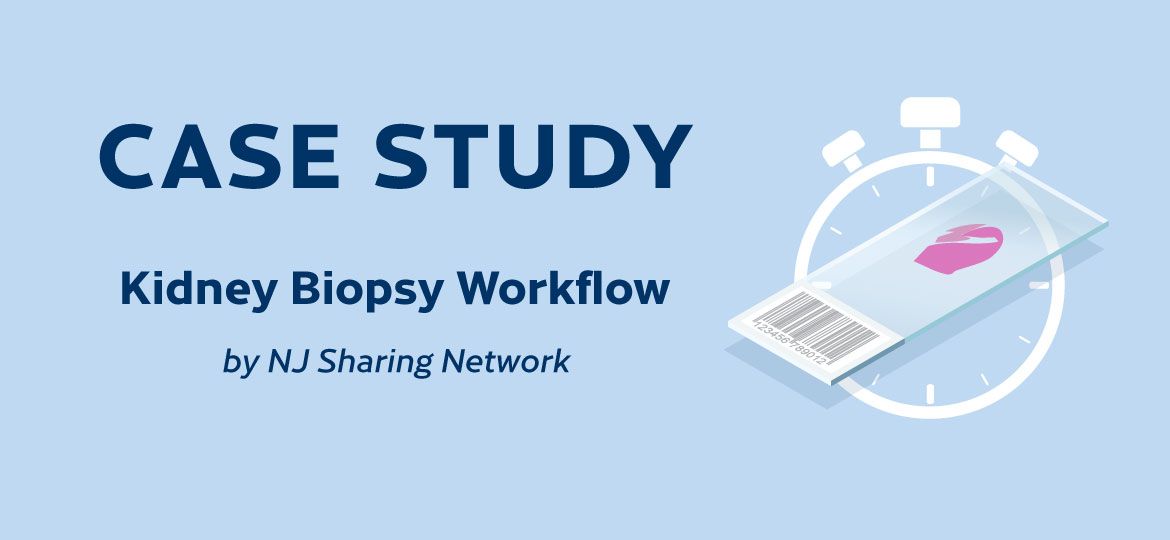
CompuMed and NJ Sharing Network collaborate to decrease time for kidney biopsy slide uploads and interpretation requests, alone, by 70%
As those in the OPO community know, every second counts when it comes to maximizing the viability of lifesaving organs. For NJ Sharing Network, the fall of 2023 marked a turning point for streamlining kidney and liver biopsy workflows to save time and lives.
Identifying Challenges in the Biopsy Process
When Sharyn Sawczak, RN, BSHCA, CPTC, CTBS, vice president of clinical utilization and laboratory operations at NJ Sharing Network, initially reached out to CompuMed, her goal was to address a critical concern: inconsistent liver biopsy interpretations.
“We had pathologists in smaller hospitals saying, ‘This is the first liver biopsy I’ve ever done,’ and that’s really scary,” says Sharyn.
Soon, the scope of the challenges expanded. New, stricter UNOS kidney reporting requirements strained the organization’s existing partnership with a transplant center program that read their kidney biopsies.
“I thought we were going to be fine, that someone could change the report, and we’d have all the things we needed to include,” says Sharyn. “But when we requested the change, we faced a huge charge to do so.”
It became clear that timelier and more reliable kidney and liver biopsy workflows were needed.
Kidney Biopsy Workflow Transformation
Before partnering with CompuMed, the NJ Sharing Network’s kidney biopsy process involved eight steps, relying heavily on hospital resources. Tasks such as frozen section slide preparation required on-call lab staff to complete.
“We realized our organ and tissue recovery teams who were already on-call were well-positioned to prepare slides,” says Sharyn. Despite some initial pushback, the team eventually embraced the challenge. NJ Sharing Network also took advantage of CompuMed’s resources – such as specialized training and receiving feedback from pathologists to help improve slide quality.
The result? A streamlined five-step process. After preparing the donor record and slides, NJ Sharing Network staff now use the Grundium Ocus® microscope solution to digitally scan and upload slide images directly to CompuMed’s secure donor management portal. With a click or tap, the team can request a read from CompuMed’s transplant-focused sub-specialist network, available 24/7/365. Final reports are returned to the OPO in 30 minutes or less for livers and 60 minutes or less for kidneys.
Our staff couldn’t be happier. It takes significantly less time and effort on their part.
“The new process really has made a huge difference,” says Sharyn. “Our staff couldn’t be happier. It takes significantly less time and effort on their part.”
Liver Biopsy Process Evolution
For liver biopsies, the team adopted a complementary workflow. While donor hospital pathologists continue to prepare and read slides, NJ Sharing Network now uses CompuMed for second opinions in cases of discrepancies between hospital pathologists and transplant centers, enabling more consistent interpretations.
The OPO is also working with a few hospitals to give its staff access to frozen section lab equipment, enabling the team to prepare, scan and share frozen section slide images directly from the potential donor’s location. In all cases, NJ Sharing Network has a Grundium scanner available in the OR to ensure flexibility and facilitate rapid image-sharing when needed.
Measurable Results
Since implementing kidney and liver biopsy workflow changes in September 2023, NJ Sharing Network has seen significant time savings.
Kidney Biopsy Slide Upload & Read Request Time
Reduced from 1 hr and 29 mins to just 26 mins – a 70% decrease. (As of June 2024)
Overall Kidney Biopsy Turnaround Time
Cut from 6 hrs and 26 mins to 2 hrs and 36 mins on average. (As of February 2025)
Liver Biopsy Read Turnaround
With five cases on record, the average read time is 26 mins, with slide scanning and uploading taking as little as 13 mins using the Grundium microscope solution. (As of June 2024)
“Receiving a liver biopsy reading that quickly is a game changer,” says Sharyn. “CompuMed’s platform also enhances accessibility. The inclusion of QR codes linked to slide galleries allows us to review all images in detail, anytime.”
Looking Ahead
The journey with CompuMed has set a new standard for efficiency and consistency in kidney and liver biopsy workflows. “We’re excited to see what’s next, especially for liver transplants,” says Sharyn.
By integrating innovative solutions like CompuMed’s technology and comprehensive pathology services, NJ Sharing Network is not only saving time but also ensuring that every donated organ has the best chance to save a life. As Sharyn says, “That’s been our journey, and it’s one we’re proud to share.”
More Resources for You
- Slide Scanning. CompuMed supports the use of the Grundium Ocus®, a portable, fully automated microscope solution that can easily scan and digitize biopsy specimens with excellent quality. Contact us to learn more about purchase and leasing options.
- Slide Creation. In addition to offering slide scanning, image sharing and interpretation services, CompuMed can help your OPO with frozen section slide creation. Check out our blogs on OPO lab set-up and preferred tools and equipment.
- Consultations and Feedback. Already have an OPO lab? CompuMed’s lead pathologist assistant is available to provide clients with consultations, training and feedback on samples. Contact us to learn more.


